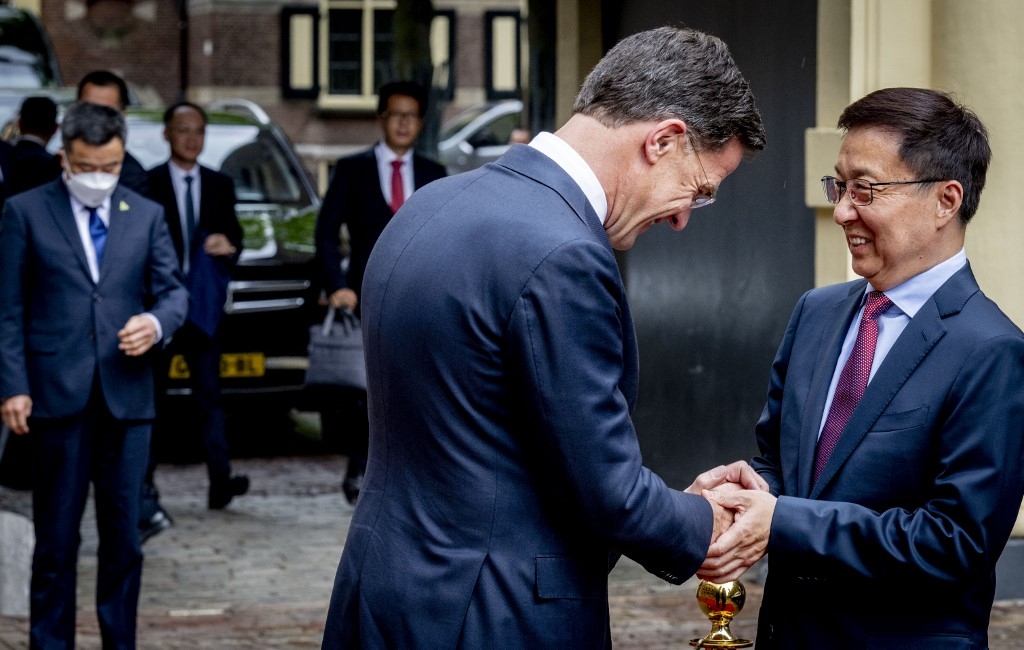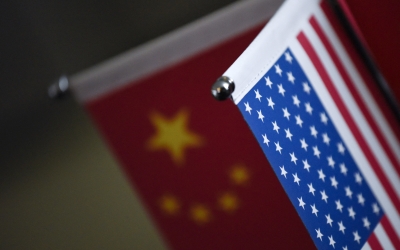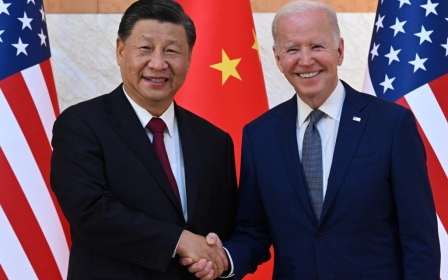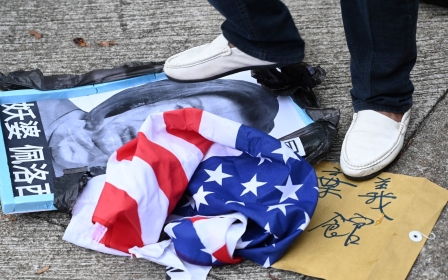US will struggle to get Europe on board the anti-China train

It is unclear as to whether the Biden administration will succeed in compelling Europe to sever its relationship with China as it has with Russia. What is certain is that the constant deterioration of US-China relations is making some EU member states anxious.
They are afraid that sooner or later, they could be asked to take the same hard and painful decisions on China that they have taken on Russia.
French President Emmanuel Macron’s recent visit to China, and his statements to the media, have introduced some doubt on the chances of a unanimous and quick European alignment behind the increasingly assertive US policy towards China.
The latest to raise concerns was UK Foreign Secretary James Cleverly, who noted: “It would be clear and easy - perhaps even satisfying - for me to declare a new cold war and say that our goal is to isolate China … clear, easy, satisfying and wrong, because it would be a betrayal of our national interest and a willful misunderstanding of the modern world.”
This last statement is a double blow. Firstly, there is a UK foreign secretary claiming that a policy being pushed by the US administration is against London’s national interest. This is quite remarkable, at least in light of the last two decades of British foreign policy. If this is what Washington’s closest ally is thinking, what could be brewing in the minds of other allies?
Secondly, the foreign secretary is hinting that the Biden administration and supporters of its China policy are struggling to cope with the tectonic shift in global power. There is no other way to interpret the expression "willful misunderstanding of the modern world".
So far, China has not "challenged" the US-led rules-based world order as Russia did by invading Ukraine - but curiously, Washington’s concern about China far exceeds its concern about Russia. US political discourse is increasingly focused on a possible war with China, not Russia.
Turf war in Washington
For several years, China has adopted policies that, according to the “universal values” encompassed in the US-led rules-based world order, are questionable for the Global West (crackdowns in Hong Kong, Xinjiang, military expansion in the South China Sea, human rights etc). All of these are serious issues, but none could justify the escalating warlike talk inside the Beltway.
If some Europeans are thus confused and anxious about their future, they might have good reason. US words and deeds regarding China have not perfectly matched, amid rumours of a turf war on China policy inside the Biden administration.
After Secretary of State Antony Blinken’s speech last year, the latest attempt to clarify US policy on China came from Treasury Secretary Janet Yellen this past April.
If the Biden administration would avoid lecturing China on its relationships with other countries, it might help the situation
While acknowledging the need for “constructive engagement between the world’s two largest economies” to confront today’s challenges, Yellen noted: “We will not compromise on the protection of human rights … The United States will continue to use our tools to disrupt and deter human rights abuses wherever they occur around the globe.”
She further noted that the US did not seek to “decouple” its economy from China’s, as such a move “would be disastrous for both countries [and] destabilising for the rest of the world”.
“Even as our targeted actions [against China] may have economic impacts, they are motivated solely by our concerns about our security and values,” Yellen said. “Our goal is not to use these tools to gain competitive economic advantage.”
If the speech was conceived to clarify and calm the waters, or as a conciliatory gesture, Beijing will see it as anything but that. The main problem is that the US defines its national security at a planetary level - including, in this case, what happens along and inside China’s borders.
When the US treasury secretary asserts that the US “will continue to use our tools to disrupt and deter human rights abuses wherever they occur around the globe”, alarm bells start ringing in Beijing - beginning with Xinjiang, Tibet and Hong Kong, and ending with how the Chinese government deals with its own people.
Contradicting international law
If the Biden administration were to avoid lecturing China on its relationships with other countries, it might help the situation. Yellen portrayed China’s “no-limits” partnership with Russia as a “worrisome indication it is not serious about ending the war”. This probably irritated Beijing, which has been the only country to table a formal peace proposal to stop the war in Ukraine.
Moreover, by claiming that any material support or assistance on sanctions evasion from China to Russia would trigger severe consequences, Yellen implied that China should comply with US sanctions - essentially suggesting that Washington’s jurisdiction extends beyond US borders.
Such a position, in stark contrast to international law, speaks volumes as to what the Chinese leadership might think when Yellen claims that China should “play according to international rules”. To which rules is she referring: the ones issued by UN bodies, or those set by the US Congress?
As to US-China economic relations, if the US assumption, as Yellen asserts, is that Beijing is carrying out unfair economic practices and not playing according to “international rules” - which, apparently, only Washington is allowed to devise and implement - then there is no clear path to solving the problems between the top two world economies.
Why should the Chinese leadership trust US assurances about its economic measures against Beijing - i.e., that Washington is not seeking an economic decoupling, and that it is motivated solely by concerns about security and values - while Washington is gradually dismantling its “One China Policy”, the cornerstone of US-China relations for the last half-century?
How can the Biden administration pretend it is aiming to gain China’s trust, while at the same time, it is increasingly infringing upon “the reddest of Beijing’s red lines” - the independence of Taiwan?
Yellen’s speech might have been motivated by good intentions, but it looks more like another missed opportunity in Washington’s repeated attempts to put its relationship with Beijing on a more solid track - an outcome that is crucial not only for the US and China, but for the destiny of the world as a whole.
The views expressed in this article belong to the author and do not necessarily reflect the editorial policy of Middle East Eye.
Middle East Eye propose une couverture et une analyse indépendantes et incomparables du Moyen-Orient, de l’Afrique du Nord et d’autres régions du monde. Pour en savoir plus sur la reprise de ce contenu et les frais qui s’appliquent, veuillez remplir ce formulaire [en anglais]. Pour en savoir plus sur MEE, cliquez ici [en anglais].






